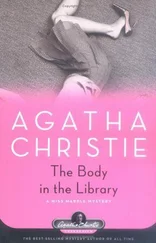On Sunday night, as he knelt by his suitcase, affixing the label, Mrs Brodribb entered the spare room. In her right hand was a brown paper parcel. She held it out timidly and said:
‘Got any room in your case?’
‘Plenty,’ said Mr Brodribb. ‘Hello, what’s this?’
‘Hot water bottle,’ his wife answered. ‘Extra strong, guaranteed. You know what your feet are, and I thought, perhaps now—’
Mr Brodribb unwrapped the parcel, revealing the gift, whose outer cover appeared to be made of tiger skin. His wife went on, justifying her display of sentiment:
‘If it leaks any time in the next six months, Prosser’s’ll give you a new one. Only don’t let them fill it with boiling, whatever you do. If you fill it with boiling, they won’t guarantee.’
‘Right,’ said Mr Brodribb. ‘I’ll tell them. Thanks, Cis.’
He was touched, and uneasy. Still on his knees, he wrapped the bottle again in its paper and stowed it with care in a corner of the suitcase. When he lifted his head his wife was at the door.
‘All aboard,’ said Mr Brodribb, to lighten the tension. ‘You be off.’
He made a threatening gesture, in play. His wife lingered.
‘Is that place comfortable you’re going to?’ she asked.
‘Seems all right,’ said Mr Brodribb, ‘there’s a nice bit of garden at the back.’
‘Oh,’ said his wife. ‘Well, good-night.’
‘Good-night, Cis,’ Mr Brodribb responded. ‘I won’t forget about that hot bottle.’
Nor did he. On Monday evening in the boarding-house bedroom, his belongings strewn about him ready to be absorbed into drawers and cupboards as yet uncharted, Mr Brodribb paused to hand on his wife’s instructions to the housemaid, who, regarding the disorder with that sympathetic mockery which is the everyday attitude of woman to man, replied:
‘I know all about that. You leave it to me. I was filling bottles before you were born.’
Mr Brodribb, who had guessed her age at about twenty-five, was flattered. He handed over the bottle, and felt in his pocket for a coin which should ensure her continued interest in him. He found two, and bestowed them. Instantly the housemaid informed him that her name was Ivy and that she never could bear to see a gentleman trying to do things for himself. On this Mr Brodribb thankfully abandoned the struggle with his belongings and went for a stroll with a cigar; retiring, he found order, and the temperature of the bottle judged to perfection.
In the kitchen Ivy sketched his portrait for the benefit of Queenie and the cook.
‘That’s a nice little feller in number four,’ said Ivy. ‘Good clothes, and not pernickety, I should say. No scent or brilliantine.’
‘Married?’ Gladys inquired.
‘Ought to be,’ Ivy responded. ‘A bit shy, though. And no photographs. No, single, I should say. But a nice little feller. The sort you can soon learn their ways.’
This prophecy was fulfilled. In a week such ways as Mr Brodribb had were learned, and the routine of ‘Melrose’ began to fit him like his waistcoat. His life appeared to the other boarders to be entirely uneventful.
They could not know, nor could the servants know, the significance of certain letters in blue envelopes which arrived for him from time to time and were immediately destroyed. These letters, which denounced Mr Brodribb as a vagabond and wife-betrayer, called upon him to return without delay to his duty, and stated in clear type what steps, in the event of non-compliance, would be taken. Each letter troubled him, not by its black and white accusations of guilt but by its wordless reminder that these were, as yet, unfounded. He knew that the step must be taken. He knew that Cissie, and Arthur, and two impeccable forms of solicitors expected it of him, and he was resigned; but, also he was afraid. He procrastinated. Time went by.
It was a chance word from Ivy that in the end, strangely, gave him courage. She appeared one evening unusually early to turn down his bed, announcing that she had the evening off.
‘Oh,’ said Mr Brodribb, ‘what’ll you do? Pictures?’
‘Pictures!’ Ivy repeated with scorn. ‘Why, last time a feller started trying to flip my suspender elastic. I had the attendant on to him, quick. No, it’s dancing I’m mad over.’
And she described the joys of the Alexandra Palais de Danse, with its twin bands, its delectable sixpenny partners.
‘You ought to go,’ said Ivy, summing up.
‘I might, some time,’ Mr Brodribb replied. ‘Good-night. Have a good time.’
‘Watch me,’ Ivy responded, and withdrew.
The next evening Mr Brodribb slipped out and took a taxi to the Palais de Danse. The exterior alarmed him; it was garish with light. But indoors, the large room into which he blundered was dim, save for a moving radiant circle in which two figures shifted to hushed music. This, he knew, must be an exhibition dance; it looked easy, artless; nevertheless Mr Brodribb’s neighbours bent forward to observe with the rapt stillness of trees and mountain tops attentive to Orpheus’ lute.
It was ended; the band, long spent, burst into a frenzy of syncopation, and Mr Brodribb, looking about him in the restored light, began to feel lonely. Couples formed the assembly, sitting, dancing, dallying: nowhere could he see a woman unattached. The couples were respectable, they danced with decorum, as a social rite, unsmiling, while above their heads the music raved and pranced, kicked high, and came slithering down on a wail from the saxophone.
At last a woman appeared in the doorway alone. She was fair, small, not so very young, not so very pretty. Her nice average face was masked with paint, and her dress was showy. Mr Brodribb wondered at her presence in that place, for he had no illusions as to her calling. Neither, it seemed, had the attendants, who watched her, questioned each other with glances, and then, nodding to each other, bore down. Calmly, civilly, they edged her towards the door. The group was almost out of sight when Mr Brodribb, stepping forward and craning to see the last of the episode, caught the woman’s eye over an attendant’s shoulder. Without hesitation she pushed the man aside and came towards him, widely smiling. Dimly he heard her greeting:
‘Well, George, wherever have you been hiding? Keeping me standing about—’
‘This lady with you, sir?’ the attendant asked, doubtfully.
‘Can’t you see I am?’ she interrupted, and took Mr Brodribb’s arm, which he did not withhold. Reassured, the attendant moved away.
‘Well,’ said Mr Brodribb to his companion, ‘since you’re here and I’m here, suppose we have a dance?’
‘I don’t mind,’ the lady replied, surveying her face by the swift circular motion of a mirror two inches square; and without further reference to his chivalry disposed herself for him to clasp. She had a snub nose, which he liked. Her hair’s metallic refinement matched that of her voice. If her scent was pervasive, her feet kept their distance. Not a bad little woman at all, he decided. Silently they shuffled, while the music raved.
‘Often come here?’ Mr Brodribb asked.
‘Not so often,’ she replied, and was instantly in full conversational sail. ‘They don’t like a girl to come here without a gentleman. Of course I saw at once you were what I call a real gentleman, or I wouldn’t have spoken.’
‘Very glad you did,’ said Mr Brodribb, ‘I was wondering what to do for a partner.’
‘Come on your own?’ she asked.
He explained that he lived quite near.
‘Lucky!’ said she. ‘It’s a nice part.’
‘And where do you live?’ Mr Brodribb asked, with no ulterior motive; but her answering glance dismayed him, reminded him. Through the hurry of his own thoughts he heard her say:
Читать дальше











